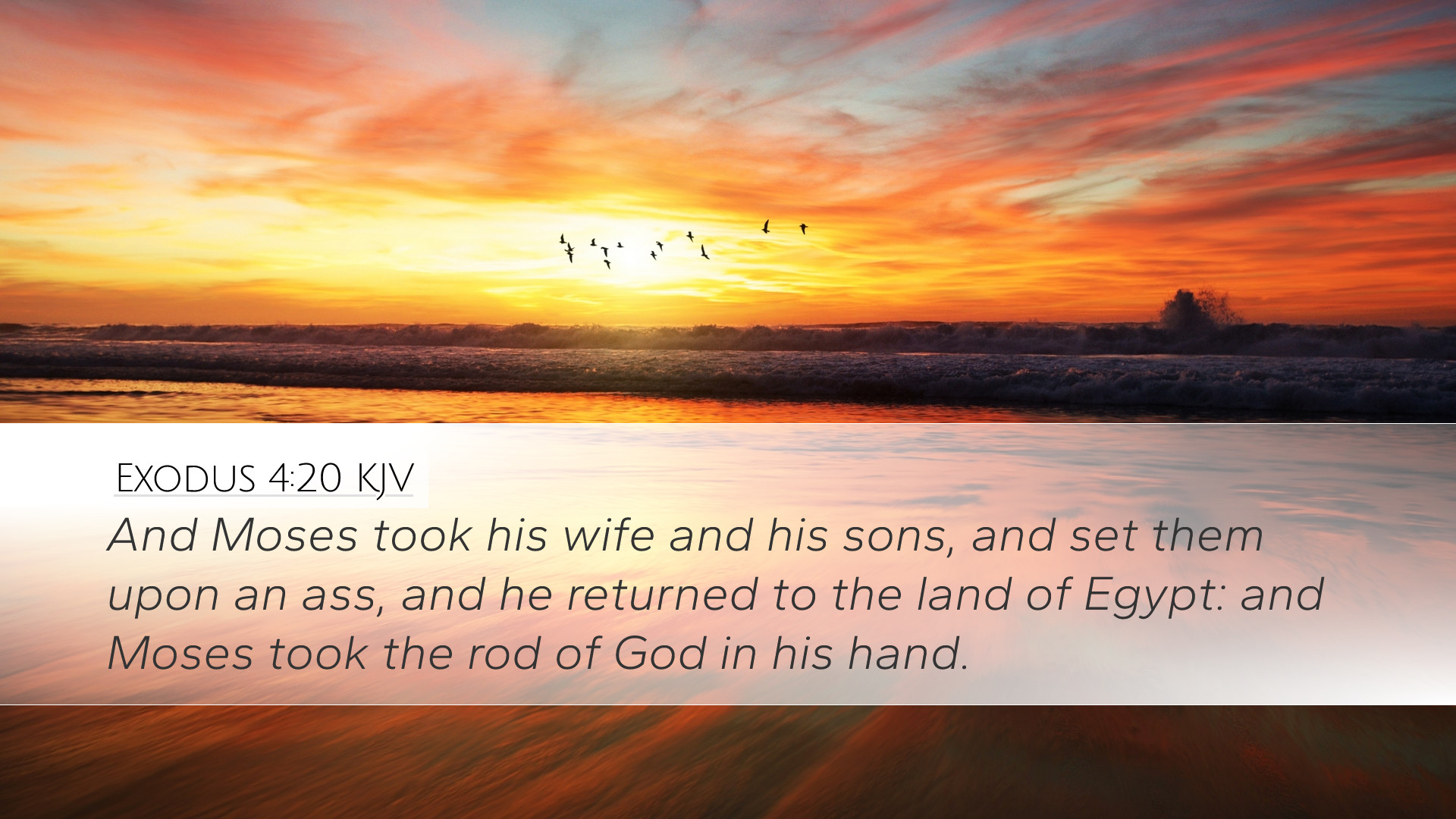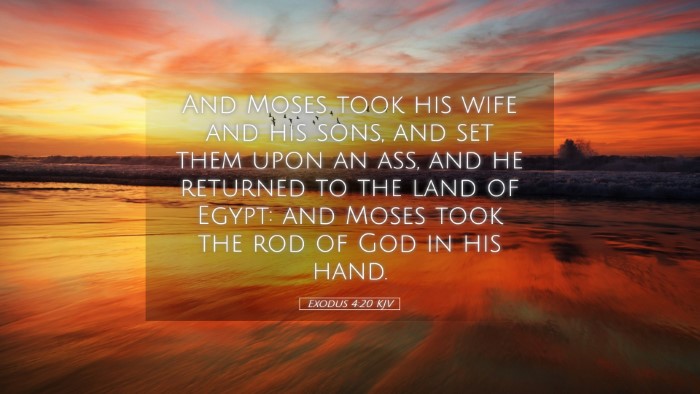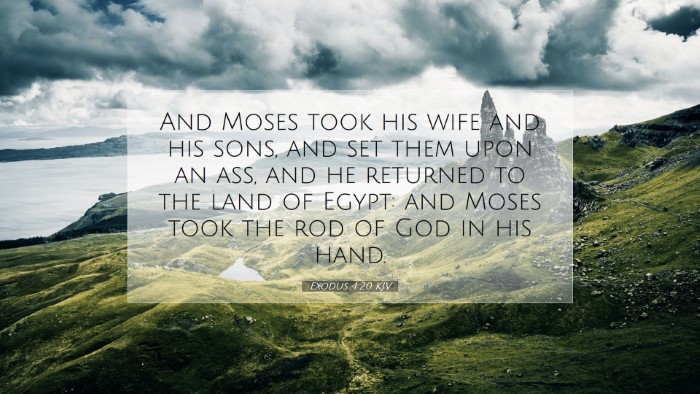Commentary on Exodus 4:20
Verse: "And Moses took his wife and his sons, and set them upon an ass, and he returned to the land of Egypt: and Moses took the rod of God in his hand."
Introduction
This passage marks a significant moment in the narrative of Exodus, as Moses embarks on the mission entrusted to him by God to liberate the Israelites from Egyptian bondage. The verse succinctly encapsulates critical themes concerning divine calling, family, and obedience. Insights from noted theologians and commentators shed light on the implications of this pivotal moment.
Matthew Henry's Commentary
Matthew Henry emphasizes the importance of obedience to God's command. He notes that Moses, despite his earlier hesitations, takes decisive action by returning to Egypt with his family. This act illustrates the seriousness of his calling and the necessity of preparing his household for the journey ahead.
Henry points out that the mention of Moses' family signifies their shared participation in God’s plan. By bringing his wife, Zipporah, and his sons, Moses acknowledges their pivotal role in the covenant promises that God has made to Israel. This also serves as an example for believers today, emphasizing the unity of family in fulfilling divine purposes.
Albert Barnes' Commentary
Albert Barnes provides a detailed analysis of the specific elements within the verse. He notes that the "rod of God" signifies not merely a physical object but also embodies the authority and power of God bestowed upon Moses. The rod becomes a symbol of the miraculous acts that God will perform through Moses during the Exodus.
Barnes further discusses the practical implications of Moses taking his family along. He indicates that Moses is not merely on an errand; he is leading his family into a promise that is larger than themselves, reflecting God's covenantal faithfulness. He also comments on the significance of traveling by an ass, which underscores humility and dependence on God’s provision.
Adam Clarke's Commentary
Adam Clarke highlights the emotional and spiritual weight of Moses’ return to Egypt. He notes that this moment is not just a physical journey but a transformation of Moses’ understanding of his identity and purpose. Clarke expresses how this journey to Egypt represents a transition from a hidden life to one filled with divine calling and public ministry.
Clarke also elaborates on the role of the rod, suggesting it serves as Moses' assurance that God is with him. The rod becomes a reminder of God’s previous works and affirmations poured into Moses’s life. It is a token of divine presence and guidance, illustrating a thematic undercurrent throughout Scripture where God equips His servants for the tasks ahead.
Theological Themes
- Obedience and Calling: The passage underscores the importance of responding to God's call. Each commentator highlights that obedience is paramount and is reflected in Moses' actions.
- Family Involvement: The necessity of family unity as they share in the journey of faith and mission, emphasizing that spiritual journeys often involve communal investment.
- Symbolism of the Rod: The rod representing divine authority and miraculous power highlights that God equips His chosen instruments with authority for His purposes.
- Transition and Identity: The transformational aspect of Moses' journey illustrates how God shapes character and identity through obedience to the divine calling.
Conclusions
Exodus 4:20 serves as a rich text for theological reflection, emphasizing principles such as obedience, family unity in divine calling, and the empowerment of God's servants. The insights from Matthew Henry, Albert Barnes, and Adam Clarke provide a multi-faceted understanding of the passage, encouraging believers to consider their own responses to God's commands.
As scholars, pastors, and students engage with this text, it becomes essential to reflect on how these themes resonate in contemporary contexts. The legacy of Moses invites ongoing conversations about divine calling, the role of family, and the assurance that comes from God as His mission unfolds.


